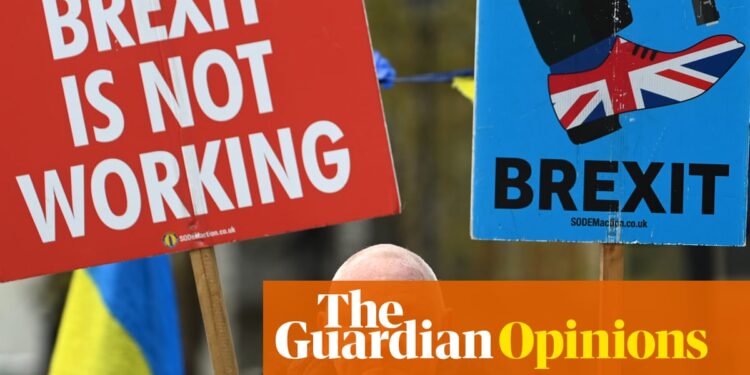The ongoing British relationship with the European Union has become an essential piece of unfinished business that Britain must address. The Labour party came into power with promises of a refreshing post-Brexit reset with Europe, which was welcomed by many. While there have been some promising shifts, much of this reset seems more show than substance.
In reality, the UK has not really budged towards a more positive trading partnership with Europe—a step that should be fundamental to any reset strategy. However, momentum might finally be building towards such change, and it’s about time.
Two key forces highlight the urgency for a new agreement with Europe. First, there’s the issue of security. In today’s volatile world, European countries recognize that unity is strength. Assisting Ukraine’s quest for independence and responding to Russian threats necessitates a joint security effort wherein European states must bear more of the defense responsibility.
The second driver is the economy. Brexit has notably shrunk the UK economy. Projections still foresee a 4% annual GDP decrease within this decade due to Brexit. The resulting drop in trade for goods and services has led to a £23 billion quarterly hit to exports, happening amidst stagnant European economies. Both the EU and UK businesses, communities, families, and employees could gain significantly from revitalizing trade and financial ties with one another.
Public opinion increasingly shows remorse over Brexit, and there’s growing support for rejoining the EU. Nonetheless, Britain remains quite split on taking such a major step. Party politics and media narratives continue to hinder robust discussion on Britain’s EU relationship, especially from an economic perspective, which has proven detrimental.
Recently, two speeches hinted that the dialogue on this might shift. Surprisingly, neither was from Labour. On Thursday, Kemi Badenoch’s speech was intriguingly vague but noteworthy. It was unprecedented for a Conservative leader to admit the mistake of leaving the EU without a clear growth plan—potentially paving the way for a reassessment within the party. However, optimism should be tempered.
Meanwhile, Sir Ed Davey, leader of the Liberal Democrats, proposed that Britain should aim to join the customs union by 2030 as part of broader European negotiations. This speech stood out as significant, as it was the first since the general elections to present a clear and forward-thinking European policy from a major UK political leader, providing substance to the “reset” narrative.
Rejoining the customs union could significantly aid trade by reducing most import and export duties with EU nations, effectively placing the UK behind Europe’s trade shield against the rest of the world. Aligning regulations, as Sir Ed mentioned, would also tackle inconveniences like forcing UK air cargo companies to service planes in the US instead of Europe, and it would address some red tape introduced by post-Brexit measures.
These speeches now challenge Labour to step up. Britain has been hampered long enough. It’s time to forge meaningful working and trading connections with Europe, independent of rejoining the EU. Recognizing the paths to security and prosperity is essential. The British prime minister must now lead the charge. Let’s see it happen.
















